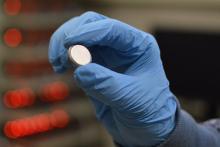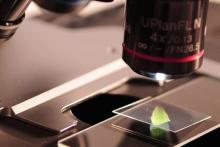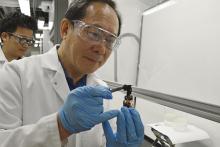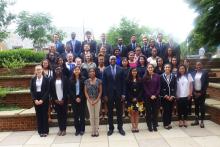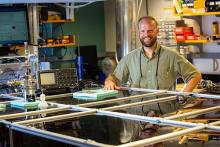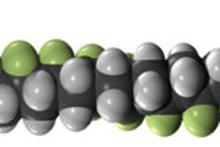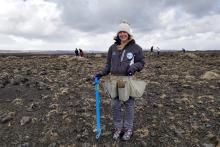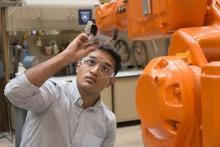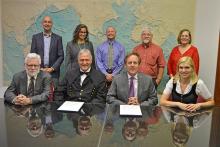Penn State researchers are developing a range of innovative technologies to harvest the sustainable energy of natural processes to power our future.
The past few years have brought a surge in battery technology. Here’s a sampling of how Penn State researchers are changing the battery landscape.
An inaugural University-wide undergraduate research symposium will showcase work being conducted by women, minorities and first-year students in STEM fields.
A super-absorbent material developed by Penn State scientists could dramatically reduce the environmental impact of oil spills on oceans and allow recovered oil to be refined normally.
Penn State Millennium Scholars, including those from the College of Earth and Minerals Sciences, say they're ready to be a part of and facilitate changes in the diversity of STEM fields.
The National Science Foundation has awarded $1.4 million to a team of Penn State scientists led by Joshua Robinson, professor of materials science and engineering, and John Asbury, associate professor of chemistry, to develop a new laboratory at the University with ultra-fast microscopes that will provide a high-resolution look at incredibly thin materials.
The inability to alter intrinsic piezoelectric behavior in organic polymers hampers their application in flexible, wearable and biocompatible devices, according to researchers at Penn State and North Carolina State University, but now a molecular approach can improve those piezoelectric properties.
How can you snorkel between two tectonic plates, hike along a canyon hundreds of feet deep and enjoy a bonfire in the mountains — all in the same day, and all while learning about sustainability? Shaylee Traugh has the answer.
Introduced in 2017, the AMD program is educating students and working engineers to become technical experts in additive manufacturing and design.
The College of Earth and Mineral Sciences (EMS) has entered a memorandum of understanding (MOU) with Montan University Leoben, in Leoben, Austria, to develop a student exchange partnership that will link two educational institutions known for their expertise in sustainable approaches to materials sciences, mining and geosciences, with additional partnership opportunities with Penn State’s Earth and Environmental Systems Institute.



